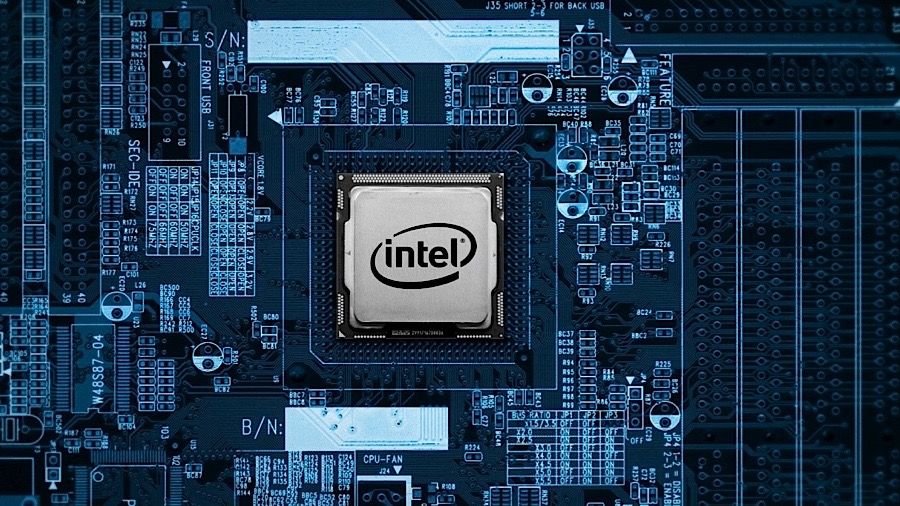Intel doesn't want its CPUs to be judged just on benchmarks, but also broader benefits
Tiger Lake is still on target, too, CEO assures us

Intel’s CEO has recently offered up his thoughts on how the PC industry is too focused on looking at benchmark numbers, and should be considering the broader benefits which its processors deliver.
The comments came from Bob Swan, chief executive, delivered in a ‘Message to Computex’ which was uploaded to YouTube.
Swan also again confirmed that Intel’s next-gen Tiger Lake processors for laptops were still on schedule to arrive in the middle of 2020, or what he actually said was ‘later this summer’ which makes it sound like a July or August ship date, rather than this month. (Remember, though, that shipping is one thing, and it won’t be until the end of the year that laptops actually go on sale with the 11th-gen processors).
- Tiger Lake CPUs might be much faster than Ice Lake
- Here are the best gaming laptops
- Don't want a laptop? Here's how to build a PC
And the CEO stirred up some controversy when he remarked that these Tiger Lake CPUs would “cement [Intel’s] position as the undisputed leader in mobile computing and PC innovation”.
Obviously, given the huge strides forward AMD has made with its latest Ryzen 4000 mobile processors, which are now making very tempting options for powerful yet competitively priced laptops, Swan’s statement seems to be tilting perilously towards arrogance more than anything else.
Granted, Intel does dominate the laptop market, with the majority of notebooks still having the company’s processors inside – so it is still the market leader when it comes to mobile CPUs, but as to innovation, well, you can’t really accuse AMD of failing in that department.
Perhaps this is pointing towards Tiger Lake coming in and being something special – after all, we’ve heard that the incoming laptop chips are set to deliver quite a performance boost over 10th-gen Ice Lake processors, at least according to the rumor mill. Certainly Intel’s Xe integrated graphics are expected to be a massive boost and twice as powerful as the previous generation, at least going by a recent benchmark leak.
Get daily insight, inspiration and deals in your inbox
Sign up for breaking news, reviews, opinion, top tech deals, and more.
Refocusing needed
Although the other main thrust of Swan’s YouTube speech, as we mentioned at the outset, is to stop focusing on benchmarks, and given the current coronavirus situation, instead look more to broader benefits
As PC Gamer spotted, Swan noted: “We should see this moment as an opportunity to shift our focus as an industry from benchmarks to the benefits and impacts of the technology we create. The pandemic has underscored the need for technology to be purpose-built so it can meet these evolving business and consumer needs.”
This has, inevitably, led to some of the more cynical online suggesting it hints that Tiger Lake might not be such a huge leap forward with its new architecture.
That aside, there’s the argument that without benchmarks, how exactly are we supposed to quantify the difference between a generation of processors anyhow? However, Swan is clearly talking in general terms, and about shifting focus away from benchmarks, rather than discarding them entirely.
Even so, one of the biggest benefits outside of CPU performance is arguably tied up in the cost of the silicon, and making processors more affordable and therefore more broadly available – and AMD has been taking the price/performance crown, with Intel’s newest Comet Lake desktop processors not making an immediate strong entrance on that front, as we’ve seen.
Will Tiger Lake push harder to be more competitive? Maybe this is an early indication that this could indeed be the case, but as ever, only time will tell.
- These are the best laptops of 2020
Darren is a freelancer writing news and features for TechRadar (and occasionally T3) across a broad range of computing topics including CPUs, GPUs, various other hardware, VPNs, antivirus and more. He has written about tech for the best part of three decades, and writes books in his spare time (his debut novel - 'I Know What You Did Last Supper' - was published by Hachette UK in 2013).